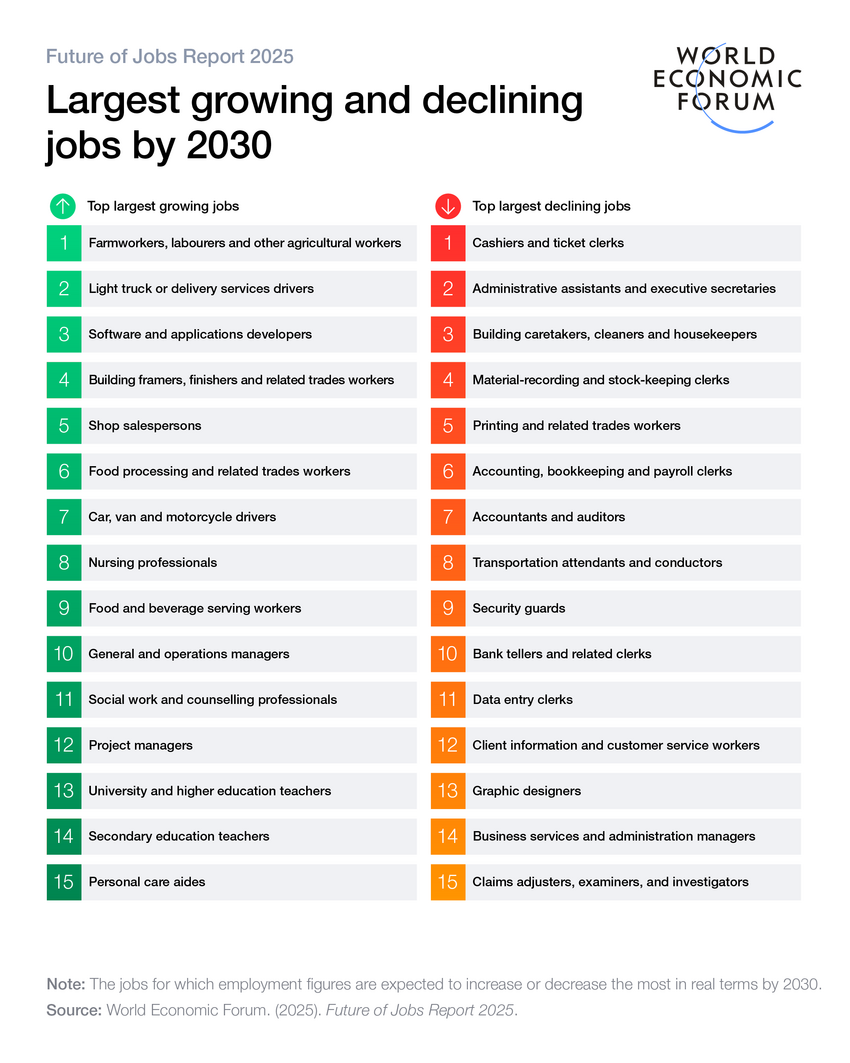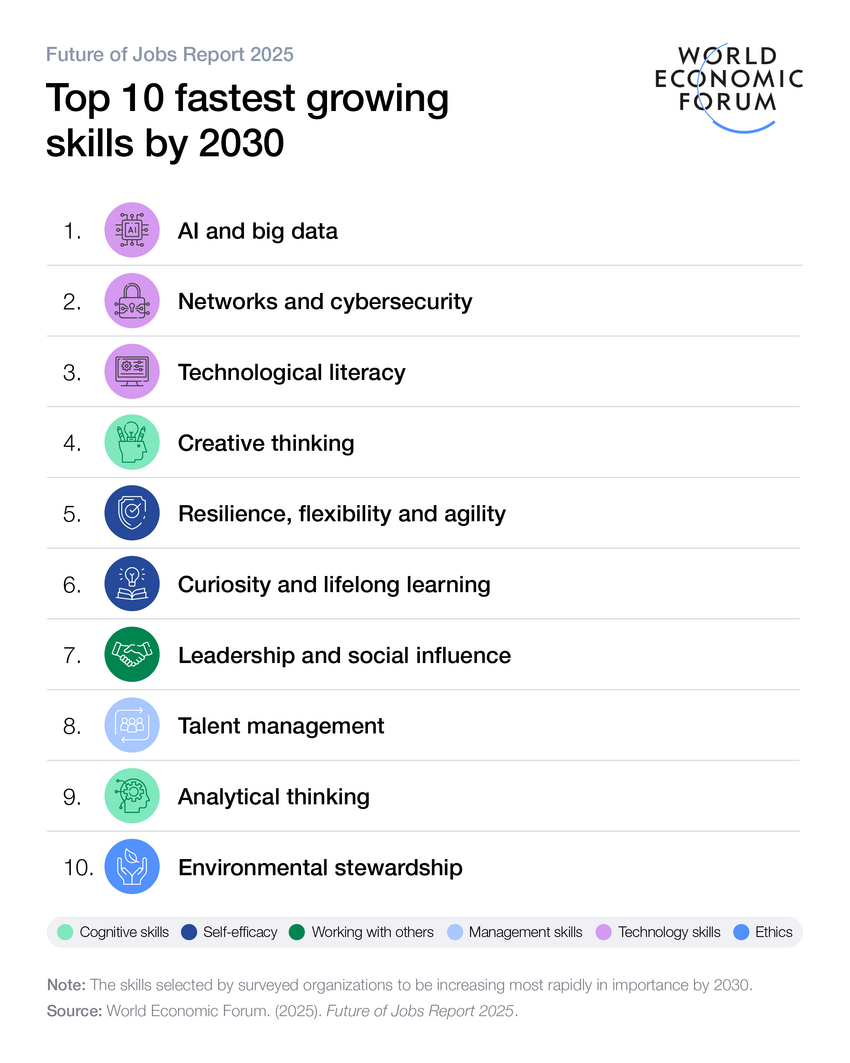
About 170 million new jobs will be created by this decade, mainly by new technologies such as
the artificial intelligence, a new report indicates.

Food processing workers also feature among the largest
growing jobs, while care jobs – including nursing professionals, social workers
and counselling professionals – are projected to grow significantly over the
next five years. This can be explained by demographic trends, especially ageing
working-age populations, the report says.
Employers expect 39 per cent of key skills required in the job market will change by
2030. This figure represents significant disruption but is down from 44 per cent in 2023. A growing
focus on continuous learning, upskilling and reskilling programmes has enabled
companies to better anticipate and manage future skill requirements, the Future
of Jobs Report 2025 says.
Technological skills are projected to grow in importance
more rapidly than any other skills in the next five years. AI and big data are
at the top of the list, followed by networks and cybersecurity and
technological literacy.
Creative thinking and resilience, flexibility and agility
are also rising in importance, along with curiosity and lifelong learning.
Rounding out the top 10 skills on the rise are leadership
and social influence, talent management, analytical thinking and environmental
stewardship.
Businesses are increasingly investing in reskilling and
upskilling programmes to align their workforce with evolving demands, the
report says. The World Economic Forum’s Centre for the New Economy and Society
is working with business, academia and governments to help people around the
world to prepare for the economy of tomorrow, including through its Jobs
Initiative and Reskilling Revolution platforms.
Helping workers achieve the right mix of technical and human skills will be vital as the future of work continues to evolve.










